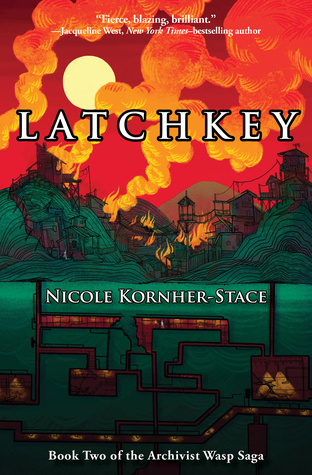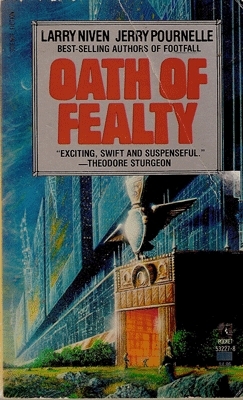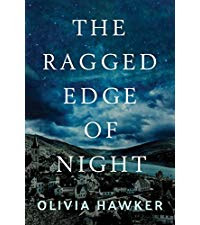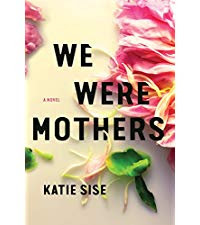Rachel Neumeier's Blog, page 219
September 12, 2018
I think I wouldn’t have bought a ticket
‘So shocked’: customer wins bookshop in raffle
The unusual prize was dreamed up by Paul Morris, who opened Bookends in Cardigan four years ago. The shop is profitable and would have made an estimated £30,000 in a sale, but Morris said he wanted to give someone else the chance to realise their dream of running a bookshop. Over the last three months, anyone who spent more than £20 was eligible to be entered into a raffle to win it.
Um.
I wonder if there’s a betting pool for whether the shop will still be profitable by this time next year?
I would absolutely hate to be dropped in the deep end as a brand! new! small business owner. Here’s a bookshop! Try not to go bankrupt! I would be very nervous if I had won this raffle. Which of course is why I wouldn’t have entered it.
“[Ceisjan] is a regular customer and I’m really pleased it was him [says the retiring owner]. He wants to run it. You can make a very good living from it – far too many bookshops have disappeared over the years.”
He wants to run it! Good for him. The new owner’s name is
Ceisjan Van Heerden, by the way. He and a friend are apparently looking forward to taking a stab at running this bookshop. I hope they make it work!
Please Feel Free to Share:









September 11, 2018
Cliffhangers are evil
A post at Book Riot: Cliffhangers: is the suspense worth it?
Spoiler: my opinion is NO. Let’s see what the author of the post says …
Oh, it turns out she is even more NO that I am:
Because cliffhangers occur at the end of a story, I finish the book with a bad taste in my mouth about the whole thing. It ruins the whole reading experience for me. It could have been a fine book up until the final “…”
For me, when a book leaves off like that, even if I really want to see what happens, and even if the Goodreads reviews are decent for the sequel, I refuse to read the next book.
Well, I wouldn’t go that far. Usually. But being burned by cliffhangers long ago when I was young and impressionable means that I generally try to avoid reading more than than the first book of a series until the whole series is complete. I hate the feeling of dread when I am coming up on the end of a book and there doesn’t seem to be room left for the story to finish. It makes me want to just stop right there, without getting to the final …..
In case you are interested, here is the book that gave me a serious aversion to cliffhangers: The Silent Tower by Barbara Hambly
When I read this book, it had just come out. That was 1986. I think this was the worst cliffhanger I had ever seen. It’s still in the top ten. The second book did not come out till 1988. Note that the hatred of cliffhangers this series instilled in me has lasted, so far, for 32 years. Pretty sure this is an aversion that is not going to wear off, ever.
It is of course much worse when the second book never actually comes out at all.
Things I don’t mind: a book that ends with loose threads. As long as something important is wrapped up, I’m okay with it. For example, take Foreigner. Waiting for the actual end of that series, well, a person could live a full life and die of old age before it ends, apparently. (Which is great, I’m not remotely tired of it yet.) But there’s no problem because (a) every book is self-contained, or (b) if not, at least every sub-trilogy is self-contained, which is close enough.
With new-to-me authors, I read the first one to see if I like it, then buy the others as they come out and shelve them until the whole series is available. This worked well for series, the first three books of which were pretty much self-contained but the fourth of which ended with a cliffhanger. I was really glad I had the fifth right there.
Note that if readers don’t buy the books as they come out, the publisher may decide sales don’t justify finishing the series at all, so there you are, stuck with half a series. This is highly unfortunate, to say the least, and that is why I do buy the books and hang onto them while I wait. I have no problem looking at a book without reading it for a year or two or three. Ten might be different, but that’s the risk you take when you buy books as they come out. Hopefully the author won’t be struck by a meteor before finishing the series, but you never know.
How about you all, do you feel the same way about cliffhangers? Can you peg a book that burned you badly enough with that kind of ending that you have never quite gotten over the experience?
Please Feel Free to Share:









September 10, 2018
Not Every Story Needs Romance
Over at the Book Smugglers blog, Nicole Kornher-Stace, author of the fantasic Archivist Wasp, as a post: Alternatives to Romance.
In the three years since Archivist Wasp was published, there’s one thing about it that keeps coming up in reviews and reader comments/questions again and again. Which is fine by me, since I haven’t gotten tired of talking about it yet! …
And so, without further ado! The full, entire, possibly long story of why I write all my close relationships as friendships instead of romances, the pros and cons of same, and how I wish more books/movies/shows/etc would do so
Three years, really? It honestly does not seem like nearly that long.
Kornher-Stace continues:
Because here’s the thing about preteen- and teenage-me. I didn’t give a shit about romance. I still don’t. It’s just not who I am. And being completely surrounded by it on all media fronts, growing up, I started to get this little voice in the back of my head, like, is something wrong with me that I just don’t see the point of this thing that’s allegedly all-important? … all the thousands of books and movies I consumed didn’t provide me any frame of reference for when one person is super into another person but has zero interest in getting into their pants. I pretty much literally never saw that represented. I needed examples of strong platonic friendships that could have turned into romantic/sexual relationships and didn’t. And they were — and are — really, really hard to find.
So she wrote the stories she wanted to read, as one does, and they got rejected:
A few [rejections] that were more specific basically said, Look, this is YA, you need romance. Love triangles are especially popular, but romance is key to sell YA.
I am pretty lucky that my editor at PRH didn’t object to the complete lack of romance in The White Road of the Moon.
A thought that drifted through my mind here was: I just wonder what would have happened if she’d sent the manuscript for Archivist Wasp out under a male pen name? Maybe her experience would have been exactly the same . . . but I just kind of wonder. I also wonder, how about sending it out as adult rather than YA? To me, this story could have worked just as well either way. However, Kornher-Stace really wanted it to go out as YA so that kids would be more likely to find it.
Side note: pushing teens toward YA as though it is especially impossible and also undesirable for teens to identify with adult characters is a modern idea that should die in fire. I am quite grateful I was a teenager before YA was a thing.
As a second side note, my agent said she thinks perhaps the adult SFF market has drifted off toward the YA type of story, very fast paced and very emotion-driven and angsty. If so . . . I would love to see that trend brought to a crashing halt. We’ll see.
Anyway, through a fortuitous series of events, Kornher-Stace found the people at Small Beer Press and they loved Archivist Wasp, as they should, and the book took off in a pretty decent way, as it deserved to, so now we have the sequel, Latchkey.

I haven’t read it … I am not reading anything at all right now, because I am very involved in writing … but the first reviews at Goodreads look very positive. I am very much looking forward to re-reading Archivist Wasp and then diving into Latchkey.
Please Feel Free to Share:









September 7, 2018
What if Pournelle and Niven’s Todos Santos had really been built?
Anybody remember Oath of Fealty by Jerry Pournelle and Larry Niven?

It’s been a long time since I read this one. I wonder if I still have a copy on my shelves?
In the near future, Los Angeles is an all but uninhabitable war zone, racked by crime, violence, pollution and poverty. But above the blighted city, a Utopia has arisen: Todos Santos, a thousand-foot high single-structured city, designed to used state-of-the-art technology to create a completely human-friendly environment, offering its dwellers everything they could want in exchange for their oath of allegiance and their constant surveillance . But there are those who want to see the utopia destroyed, whose answer to tomorrow’s best and brightest hope is mindless violence. And they have just entered Todos Santos. . . .
In Oath of Fealty, Pournelle and Niven posited a giant building, or a small city, that offers a really nice place to live, at least if you don’t mind little cameras looking over your shoulder all the time. The bad stuff comes from outside the city.
But check this out:
When I was going to Ponte City, my taxi driver repeatedly asked me if I knew what I was doing. “It is a dodgy area,” he said. …When he asked the fourth time, I managed to explain that there was a tour and I was going inside the building. Then he quieted down and seemed satisfied. Because Ponte City is a building. A building tall enough that it once was almost self-catering, a city with within a city with bars, shops, daycare, barber, bowling alley and more.
According to the owner of my bed-and-breakfast, Ponte City has a kind of legendary aura around it. It is a place everyone knows. It is even a place that was used to scare little children. “If you do not work hard in school, you will end up in Ponte City”
This is an essay posted at File 770, by Hampus Eckerman, about a huge building in Johannasburg that was supposed to work like Todos Santos. Spoiler: it didn’t turn out well.
Built in 1975, it was a place where everyone wanted to live.
20 years later it was a place in ruins, a place where no one wanted to go. It was known for its suicides, people travelled to Ponte City only to throw themselves from the top of the building. The inside of the cylinder was filled up with garbage, at the end it reached 14 levels high and there were rats the size of cats. The building with its close to 500 apartments roomed almost 10,000 people, many of them criminals. There was even a discussion of turning the whole building into a prison. Putting locks on the door in the middle of the night and putting guards there to keep its armed residents inside.
Wow. It sounds a bit like the infamous Projects of East St Louis, only all packed into one building and dialed up to 11.
What went wrong? Well, that’s quite a story. It started with intrusive, unpleasant government actions and then segued through what sounds to me like extraordinarily stupid, brutal government inaction. Click through and read the whole thing.
There is a remarkable ending to this story, though:
So how is Ponte City today? Like a miracle, it has turned around. A temporary owner managed to empty the building of all its criminal residents, exactly how this happened is unknown. Perhaps the gangsters were bribed. Perhaps the police. What we know is that the building was empty and renovations were started. In 2012, people could start to move in again…
I certainly did not see that coming.
Please Feel Free to Share:









September 6, 2018
It’s Aliens
Weird Hexagon on Saturn is bigger than expected, it seems.
The weird hexagon swirling around Saturn’s north pole is much taller than scientists had thought, a new study suggests.
Researchers have generally regarded the 20,000-mile-wide (32,000 kilometers) hexagon — a jet stream composed of air moving at about 200 mph (320 km/h) — as a lower-atmosphere phenomenon, restricted to the clouds of Saturn’s troposphere.
But the bizarre structure actually extends about 180 miles (300 km) above those cloud tops, up into the stratosphere, at least during the northern spring and summer, a new study suggests.
Neat! I have been enjoying all the weird unexpected crazy astronomy over the past couple years. Glad to see that’s continuing.
Pretty pictures at the link.
Please Feel Free to Share:









Big Round Numbers
Over at tor.com, a post by James Nicoll: Doing the Math: Aliens and Advanced Tech in SF.
Everyone loves them some aliens. But …if the encounter is to work out to the satisfaction of all concerned, it is best if the aliens not be too advanced (because they could brush us aside like ants) or too primitive (we might brush them aside like ants). No, there’s a Goldilocks zone for aliens, in which they are close to the same tech level as humans … and can interact peaceably with us.
Which leads me to wonder: just how likely is it that two unconnected civilizations could reach the same technological level (roughly) at the same time?
Time for some large, round numbers.
Not a new topic, but always fun. I’m not sure Nicoll mentions this, but in order for (many) stories to work, the species in question also have to be (relatively) close together; that is, preferably in at least the same galaxy, though if you push me, I’m sure I can think of some wormhole stories where physical proximity in real space is totally unimportant.
Moving on —
To put it another way: if we imagine that ten billion years as one day, humans have been around for a bit over 2 1/2 seconds. High tech has been around for about a thousandth of a second.
For a second species from an unrelated world to have evolved into intelligence and invented tech—specifically tech that hit human levels at just that thousandth of a second…it’s extremely unlikely. Even the possibility that we’d show up in someone’s sky while they were still playing with stone axes seems unlikely .
But alien races are fun! So how can authors deal with the grim numbers? The usual way: denial, anger, bargaining, depression, and acceptance.
That’s the way! Onward with that! Always fun to apply random pop psych in completely inappropriate ways. (I’m serious. I get a kick out of seeing things like the so-called stages of grief turn up in odd contexts like this one.)
My favorite is bargaining, though I’m not sure I would use any of the examples given. I can come up with my own semi-plausible hand-wavy explanation, I bet.
I would, as an author, be pretty okay with using Denial or Acceptance, too.
In fact, if I were writing an SF series, not a standalone, I might well start with Denial and then go for Bargaining later as I decided I really had to figure this out.
Please Feel Free to Share:









September 5, 2018
Advice for writers
This is interesting: at Anne R Allen’s blog, a post entitled: Nine Pieces of Bad Advice New Writers Should Ignore.
As far as I’m concerned, that is irresistible click bait. Fine. What are these nine pieces of bad advice?
Social Media is both a boon and a curse to new writers….but social media is also a major source of misinformation and dangerously bad advice.
I belong to a lot of Facebook writers’ groups where I see newbies ask questions that get a bunch of conflicting responses. Sometimes when I see misinformation, I jump in to correct it, but often I can tell that resistance is futile. There’s such a wealth of bad advice that I don’t know where to begin.
She begins here:
1) If you can’t handle rejection, just self-publish.
If you think agent rejections are hurtful, your first Goodreads review will send you into screaming agony.
Hmm. I guess. Nothing requires you to read one- or two-star reviews. I try not to, personally. Still, it’s true you can’t avoid noticing agent rejections or editor rejections in the same way that you can avoid reading reviews.
I would more imagine that reasonable advice might emphasize the time traditional publishing takes rather than the sense of rejection. Sending out a partial or full manuscript to many agents and waiting waiting waiting for responsed is not just bound to result in most of them turning you down, but in a lot of time passing before you find that out.
2) It’s never too early to start marketing.
Don’t send reader newsletters before you have something for them to read.
That certainly sounds reasonable.
3) Learn to game Amazon.
But even if somebody is making major bux running circles around Amazon’s algorithms right now, you can be sure that Amazon will catch on eventually. Then you can be booted off the site—for life. No shopping. No using that gift card, or even your Prime video subscription.
Yes, fear of that phenomenon plus a generally law-abiding nature means that I don’t have to go to the trouble of learning how to game the system, which sounds like it is really a full-time job anyway.
4) Don’t bother editing, that’s what editors are for.
I see this terrible advice a lot. And it can make any editor cry. Whether you’re self-publishing or going the traditional route, you need to send your editor or agent the cleanest copy you possibly can.
This is advice I have never understood. I can’t imagine who could think it’s good advice.
If you’re a writer, your tools are language and storytelling. If you can’t use those tools effectively, you will not be able to write good books. Therefore, you need to learn those skills. That seems like a no-brainer to me.
5) Using social media to try to make people stroke your ego is a great idea.
Social media can be tedious. So you see one of those memes: “You’re all a bunch of meanies who aren’t really my friends. If you don’t leave a comment on this thread right now, I’ll unfriend you.” Resist all urges to post this to your own page.
OMG. Just do not.
I probably won’t unfriend you if you do this, because I’m lazy and seldom bother unfriending anybody. But just like every other person in the entire universe, I hate this. If you keep doing it, I will mute you or whatever the word is for making it so I can’t see anything you post.
6) Newsletters are magic.
I much prefer to be able to visit a blog where I can interact with the blogger and other readers. But I’m not everybody. Here’s my post on why I prefer a blog, but many authors prefer newsletters.
Yeah, well, I am pretty behind on thinking about a newsletter for this fall. Hey, I am totally busy writing right now. Any day now I will think about the newsletter.
7) Forget traditional publishing. It’s dead.
The fact that Barnes and Noble is faltering is sad, but it’s not due to a failing publishing industry. It has to do with their own management issues.
That’s a nice theory. I agree with the part about B & N. Not so sure I agree the Big Five are in dandy shape. We’ll see how the next decade or two go.
8) Don’t query agents. They’re all crooks.
A whole lot of people want to paint all agents as useless greed-monsters. It’s simply not true. Most agents work their derrieres off for their clients.
Yes, let me point out that this is actually offensive to writers who have agents, as well as (obviously) to agents who are honest. I have had indy writers tell me to my face that my agent is probably cheating me. That tells me more about them than about my agent.
9) Self-publishers can party like it’s 2009.
Those were the days.
But guess what? That doesn’t happen a whole heckuva lot anymore. Not without a pricey, hard-to-get Bookbub ad and other expensive marketing. Things have changed a lot in the last ten years . . .
Alas, you don’t have to tell me it’s not as easy now as it was then
Allen has a lot more under every point, especially this one. It’s a pretty good post with a lot of intriguing links going off in all directions. Click through and read the whole thing if you are so inclined.
Her take-home message:
Anybody Who Tells You There’s a Shortcut to Publishing Success is Giving You Bad Advice
Unfortunately, that is true.
Please Feel Free to Share:









September 4, 2018
Stepping away slowly
You know how Amazon offers you monthly “free reads” if you are prime subscriber? I mean, they offer you a free copy of any of half a dozen books, I think generally books that are debuting that month. Since the books are free, I usually pick one and drop it onto my kindle to read, you know, some day.
Here is the one I picked for September:

Here is the description: that made me click through:
For fans of All the Light We Cannot See, Beneath a Scarlet Sky, and The Nightingale comes an emotionally gripping, beautifully written historical novel.…
I don’t know anything about the comp titles mentioned, but they’re all good titles. “The Ragged Edge of Night” is also a great title. I like historical novels, evocative, poetic title, sure, tell me more.
Here is the full description from Amazon:
Germany, 1942. Franciscan friar Anton Starzmann is stripped of his place in the world when his school is seized by the Nazis. He relocates to a small German hamlet to wed Elisabeth Herter, a widow who seeks a marriage—in name only—to a man who can help raise her three children. Anton seeks something too—atonement for failing to protect his young students from the wrath of the Nazis. But neither he nor Elisabeth expects their lives to be shaken once again by the inescapable rumble of war.
As Anton struggles to adapt to the roles of husband and father, he learns of the Red Orchestra, an underground network of resisters plotting to assassinate Hitler. Despite Elisabeth’s reservations, Anton joins this army of shadows. But when the SS discovers his schemes, Anton will embark on a final act of defiance that may cost him his life—even if it means saying goodbye to the family he has come to love more than he ever believed possible.
Sounds like something I might like. I hope it’s not too tragic all the way through. It also says:
…an emotionally gripping, beautifully written historical novel about extraordinary hope, redemption, and one man’s search for light during the darkest times of World War II.
Phrases that work for me: extraordinary hope, redemption, search for light.
Now, let’s compare that to a book from which I reflexively flinched away:

Here is the description:
A brilliant, twisty novel about a missing woman, an unfaithful husband, and the dark secrets that will destroy two perfect families…
Phrases that absolutely do not work for me at all: dark secrets that will destroy two perfect families. Actually, not keen on the unfaithful husband either.
So, great description! Brilliant and twisty are not sufficient to make up for destroying families. Thank you for the warning. I can now back away without clicking through read the full description.
Please Feel Free to Share:









Takeaway: Don’t believe what you see in movies
We all knew already that shooting into the gas tank of a car will not, in most cases, make it explode. Or at least, I had a vague notion about that, and confirmed it after doing a lot of research (five minutes on Google, maybe ten).
Incidentally, if you mention this on Facebook, a perhaps surprising number of people will tell you how to make a car explode by shooting it. Although that might be helpful knowledge under somewhat unusual circumstances, it’s not helpful if your protagonist just has a normal gun and a normal car, rather than a really impressive gun or a car that has a lot of explosives in the back seat.
 This never happens if you just shoot a normal car with a normal gun
This never happens if you just shoot a normal car with a normal gunWell, here’s something else that the movies shows us that doesn’t work in real life: Bystander cricothyrotomy with ballpoint pen: a fresh cadaveric feasibility study.
Hopefully it will never be important for you to know that those scenes where someone performs an emergency tracheostomy with a ballpoint pen are not based on reality.
 You cannot punch through cartilage with a pen. Sorry.
You cannot punch through cartilage with a pen. Sorry.Please Feel Free to Share:









August 31, 2018
SFF Alternatives to Traditional Education
Here’s a post at tor.com: 6 SFF Alternatives to Traditional Education.
This is kind of a neat idea for a post, but what makes it is the reading list. The post is by Stubby the Rocket, who will briefly discuss the alternative of “apprenticeship,” for example, and then add a list of five to ten SFF novels in which apprenticeships play an important role in education. Very nice! Let me see what categories of nontraditional education Stubby the Rocket picks out of the SFF literary universe …
Transformation! Hah! That is one very alternative means of education. Once and Future King — not a great favorite of mine, actually — but yes, I remember Merlin turning Wat into a falcon and things like that. Not entirely sure what the kid was supposed to learn from that, now that I think about it.
Would the Majipoor Chronicles by Silverberg count, where you remember or experience someone else’s life without actually being transformed?
Technology. That’s one I thought of right away. One SF world missing from the reading list — the Touchstone Trilogy. Of course there must be a hundred others, that’s just the one I thought of with regard to the use of tech in learning.
I’m sure I saw a casual reference to viral learning in some SF book or other. That’s a different kind of tech-based learning. Probably it’s been used now and then. Anybody remember a specific instance?
Next, Music and Songs. Okay, that seems like a pretty limited route to education to me. But, sure, as a way of remembering historical events and things like that, sure. There are probably better examples of music and songs actually being super-important as educational tools, rather than super-important in themselves, but I can’t think of any right off-hand.
Apprenticeship. Sure, that’s actually more traditional than, uh, traditional education. Very easy thing to put into a fantasy world.
Taking a Gap Year. Hah, didn’t see that category coming. Stubby the Rocket says:
Most epic quests have a degree of learning-via-travel: go forth, save the world, pick up a few fighting tips and camping skills on the way! But some feel a bit more like legit gap years than others. Foremost among these? Westley’s transformation into the Dread Pirate Roberts. Our boy had gone into the world to seek his fortune, but what he got was something else: an education. And let’s be honest, his fencing skills (and cool mask) were probably way more interesting to Buttercup than plain ol’ money would’ve been.
Gotta admit, the cool mask makes a nice adjunct to a pile of money.
And the last one is pretty much a component of traditional education:
Book Learnin’.
While other SFF students apprentice themselves out, travel the world, or transform into creatures great and small in their quest for a good education, there are other characters who simply go to the library.
Well, I must admit, that’d be more my speed in most fantasy worlds. Way better than going forth to save the world, that’s for sure.
My favorite comment on this post:
Best way to learn is via montage, every movie I saw in the 80s confirms that for me.
Hah, very true! Remember when Buffy made that snide comment about montages in the musical episode, and then sure enough, a montage ensued? Great episode.
Any other educational alternative occur to you?
Please Feel Free to Share:












